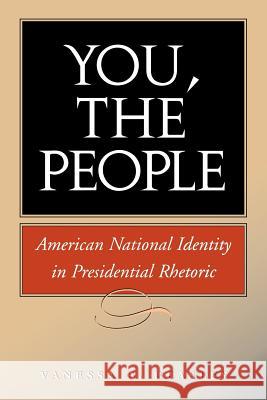You, the People: American National Identity in Presidential Rhetoric » książka
You, the People: American National Identity in Presidential Rhetoric
ISBN-13: 9781603442985 / Angielski / Miękka / 2011 / 216 str.
As we ask anew in these troubled times what it means to be an American, You, the People provides perspective by casting its eye over the answers given by past U.S. presidents in their addresses to the public. Who is an American, and who is not? Could any questions be more timely? And yet, as Vanessa Beasley demonstrates in this eloquent exploration of a century of presidential speeches, the questions are not new. Since the Founders first identified the nation as "we, the people," the faces and accents of U.S. citizens have changed dramatically due to immigration and other constitutive changes. Yet on various occasions U.S. presidents have had to speak as if there was one monolithic American people. Here Beasley traces rhetorical constructions of American national identity in presidents' inaugural addresses and state of the union messages from 1885 through 2000. She argues convincingly that while the demographics of the voting citizenry changed rapidly during this period, presidential definitions of American national identity did not. Chief executives have consistently employed a rhetoric of American nationalism that is simultaneously inclusive and exclusive; Beasley examines both the genius and the limitations of this language. This book invites readers to pay closer attention to some of the platitudinous and perhaps even predictable ways in which presidents, when speaking ritualistically, have encouraged the American people to think of their common bonds. A book for all those puzzling over the nature of citizenship and whether there are new limits in post-9/11 America, this retrospective of presidential definitions of national identity helps readers understand how political community has been possible in the United States and how it can endure in an increasingly multicultural era. Vanessa B. Beasley is an assistant professor in the Division of Corporate Communication and Public Affairs at Southern Methodist Univeristy, where she teaches and researches political communication. She holds a Ph.D. in Communication Studies from the University of Texas at Austin.











